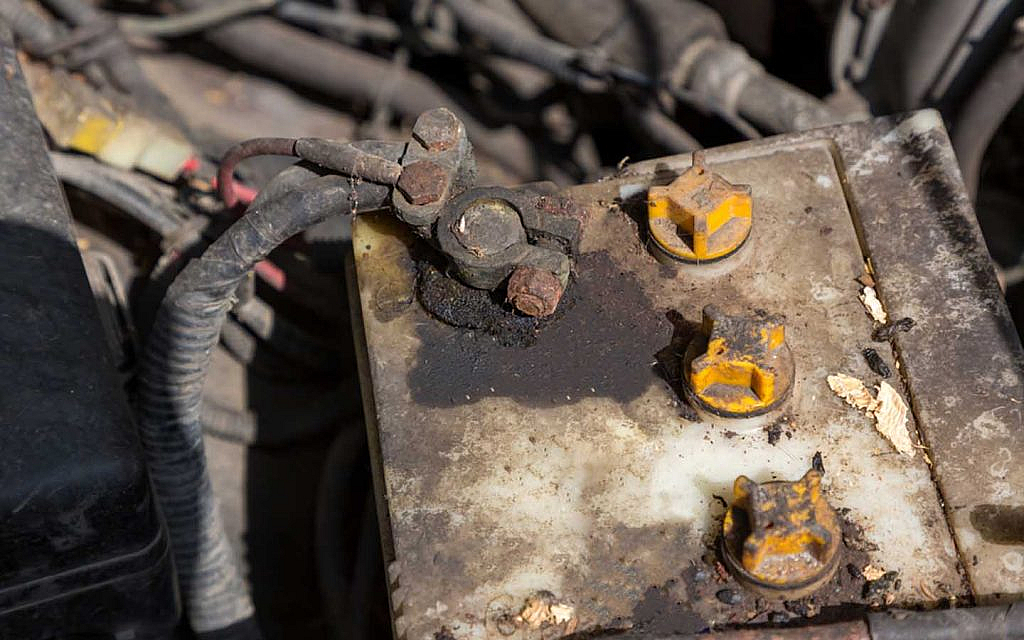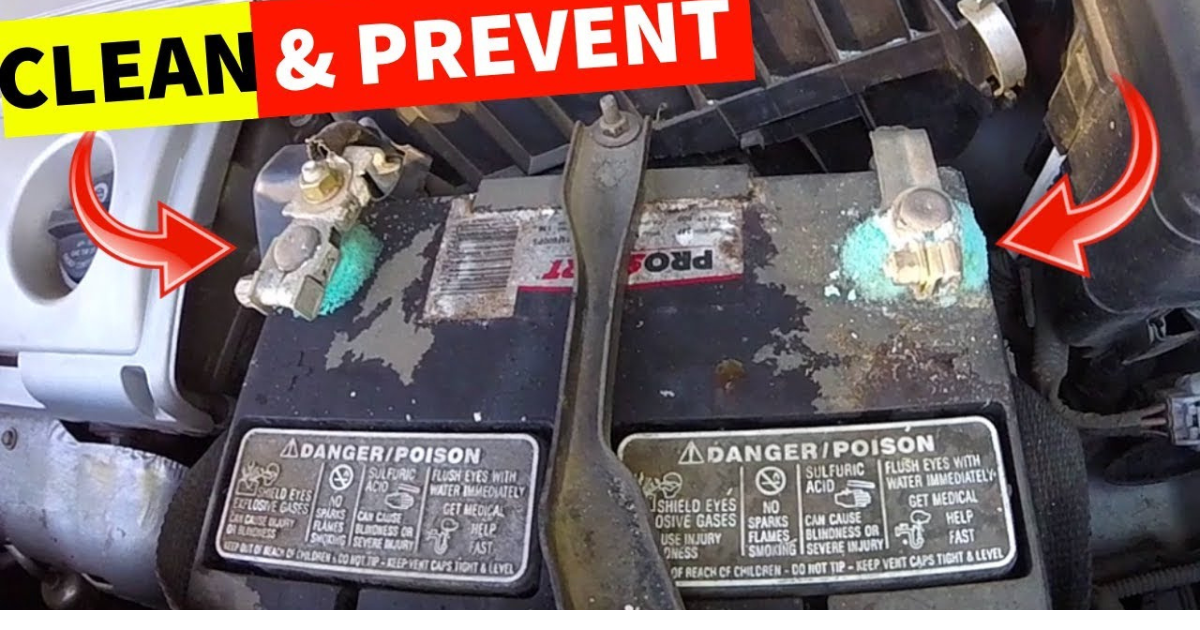Because of battery degradation, car owners continually struggle with battery troubles. This may slow the vehicle’s electric current.
Terminal and cable corrosion is basic metal degradation. This is frequently caused by battery chemicals escaping and touching these metal portions.
When battery fluid touches metal parts, a chemical reaction steadily destroys their surfaces. Corrosion is indicated by green, white, or blue powdery deposits.
Today, we’ll discuss battery corrosion, its causes, and cleaning.
What does corrosion on a car battery indicate?

Battery corrosion is the progressive deterioration of metal battery elements, especially terminals and cables. Chemicals like sulfuric acid usually reach metal components.
Battery electrolyte is chemical. It contains sulfuric acid and distilled water. Ions retain charges by moving between positive and negative plates during charging or discharging.
Causes of Battery Corrosion?
The following variables might cause car battery corrosion.
Battery leakage
Leaks in batteries release chemical liquid and vapor. Once out, it attacks metal items like terminals and wire connections.
High temperatures, weak plastic bodies (due to age), regular wear and tear, physical damage, and more can cause battery leaks.
Undercharging or overcharging can produce leakage. When the battery is overcharged, the electrolyte expands and leaks through the plastic body. However, undercharging increases gaseous fluid discharge, which could leak.
Old battery
Corroded terminals are guaranteed with old batteries. For what reason? Leaks and bushing damage are more likely in older batteries. Because the battery’s body has been exposed to several situations, it degrades with time.
Terminal bushing damage
All battery cells are loaded with fluids. Check fluids again if one terminal is rusted. An empty cell at the corroded terminal indicates a damaged bush.
The bushing seals the battery housing and terminal. This keeps battery fluid from escaping to the terminals.
If the battery bushing breaks, the battery fluid leaks to the terminal and corrodes it.
Too much distilled water in the battery
Most batteries contain sulfuric acid and distilled water, so when the liquid level is low, people add water. Mistaken execution is the issue.
Overwatering occurs when people add too much battery fluid. Because too much water in the battery makes it easier to reach the terminal, corrosion will occur.
Avoid “overwatering” by adding fluid after charging the battery.
How Do You Clean Car Battery Corrosion?
Baking soda, water, and a towel remove corrosion from batteries. The battery terminal corrosion will be removed by mixing baking soda and water. Mixing the combination with battery fluids can damage the battery, so do not pour it straight on it.
Below is how to clean automobile battery corrosion
- Turn off the automobile and unhook the battery terminals or remove the battery.
- Add a little water to a container of baking soda to activate it.
- To neutralize battery acid reacting to metal, apply baking soda mixture to the afflicted battery part with the rag.
- Use the rag to remove rust.
- Use a steel wire brush to remove terminal corrosion.
- A paper towel or dry rag to clean the terminal.
- Connect the cables.
What prevents car battery terminal corrosion?
Below are battery corrosion prevention methods.
- Grease terminals
What grease keeps sulfuric acid, hydrogen, and other corrosives from the metal terminal?
Grease coats metal terminals to protect them from contamination. Well-greased metal will not corrode if the battery’s sulfur or hydrogen gas touches it.
2. Watch battery charging.
Your battery may display indicators of overcharging or undercharging. For instance, an overcharged battery will have high voltage, acid smell, bulging shape, and more.
3. Regularly inspect battery terminals
Checking the battery regularly will reveal leaks and other damage. Leaks detected quickly can be repaired before they cause major damage or terminal corrosion.
4. Protect batteries
Spray battery guards provide a layer that protects the terminal against corrosion.
The terminal cover is recommended for all cars. Rubber terminal covers prevent corrosion, short-circuiting, and more.




